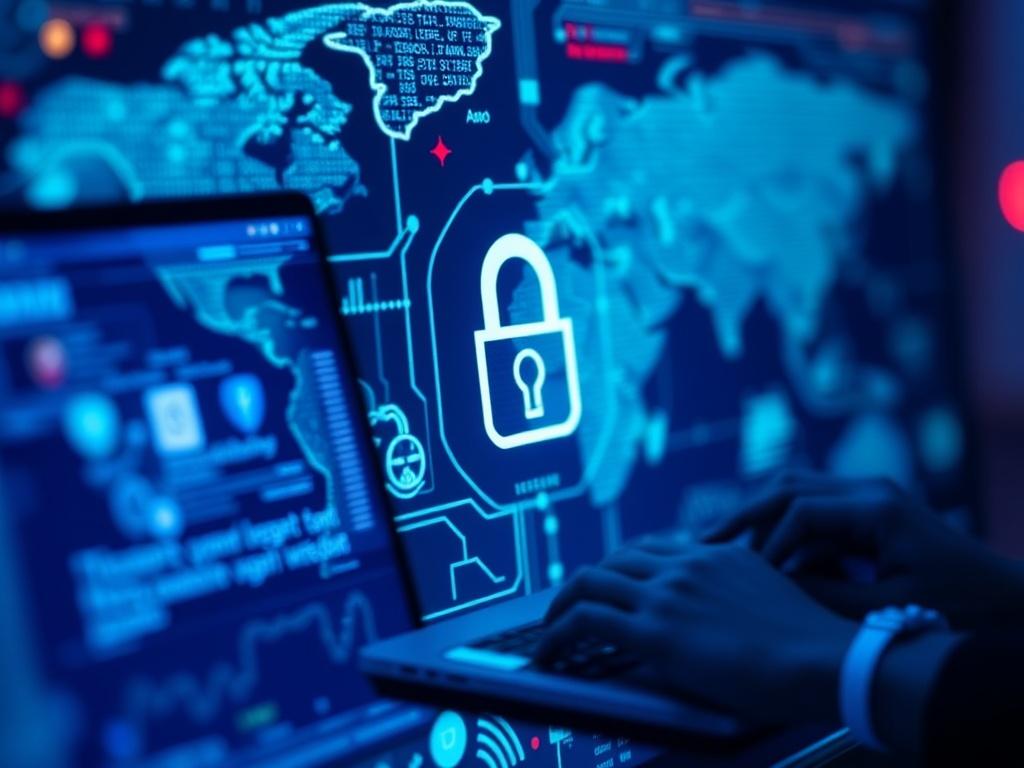Why Safe Internet Access Matters When Traveling Abroad
Traveling abroad opens up a world of exciting possibilities—new cultures, unique experiences, and unforgettable memories. But it also presents some challenges, especially when it comes to accessing the internet safely. Whether you’re checking emails at a café, streaming your favorite shows in a hotel room, or using public Wi-Fi at an airport, the risk of your personal data being exposed is real. This is where using VPNs for safe internet access abroad becomes essential. A virtual private network (VPN) helps protect your privacy, bypasses geo-restrictions, and ensures your online activities remain confidential no matter where you are.
Let’s face it, many travelers underestimate the importance of a VPN until they experience slow connections, blocked websites, or worse—data breaches firsthand. Public Wi-Fi hotspots, which are common at hotels, airports, and coffee shops, are notorious for being unsecured. Hackers can eavesdrop on your internet traffic, steal sensitive information, or even install malware on your devices. So, understanding how to use a VPN and choosing the right one is crucial for a smooth, safe browsing experience when abroad.
How VPNs Work: The Technology Behind Secure Internet Access
At its core, a VPN creates a secure tunnel between your device and the internet, encrypting your data so that anyone intercepting it sees only indecipherable information. When you use a VPN, your IP address—the unique identifier that shows your device’s location—is masked by the VPN server address. This means that instead of your true location, websites and apps see the VPN server’s IP, unlocking access to content that might otherwise be restricted.
Here’s a simple breakdown of what happens when you connect to a VPN abroad:
- You launch your VPN app and select a server in your desired country (often your home country).
- Your device establishes an encrypted connection to the VPN server.
- Your internet traffic is routed through this VPN server.
- Your real IP address is hidden, and you appear to be browsing from the server’s location.
- Your data remains encrypted and safe from prying eyes while in transit.
This process is seamless and usually adds just a small delay to your internet speed, which is a fair trade-off for the privacy and security benefits you gain.
Encryption Protocols Explained
VPNs use different encryption protocols to secure your data. Some of the most common ones include:
| Protocol | Description | Security Level | Speed |
|---|---|---|---|
| OpenVPN | Open-source, highly secure and configurable | Very High | Moderate |
| IKEv2/IPSec | Fast and stable, good for mobile devices | High | High |
| WireGuard | Newer, lightweight, very fast with strong encryption | High | Very High |
| L2TP/IPSec | Often used when other protocols are blocked | Moderate | Moderate |
Choosing a VPN with modern protocols like WireGuard or OpenVPN ensures your online activities are protected without sacrificing performance.
The Benefits of Using VPNs for Safe Internet Access Abroad
When you’re traveling, there’s nothing worse than discovering that the websites or apps you rely on every day are blocked. Governments or workplace networks may restrict access to social media, news sites, streaming services, or communication platforms. Using a VPN helps you get around these limitations by making it appear as if you’re browsing from a different location.
But the benefits of VPNs extend well beyond unblocking content:
- Protect Sensitive Information: Online banking, business emails, and private communications are shielded from hackers and identity thieves.
- Secure Public Wi-Fi Connections: VPNs defend against data interception on open and unsecured networks.
- Bypass Censorship: Some countries have strict internet censorship policies; a VPN lets you break free from those restrictions.
- Avoid Price Discrimination: Certain e-commerce websites adjust pricing based on your location; VPNs allow you to compare prices from different regions.
- Access Home Content: Streaming platforms like Netflix and Hulu have content libraries that vary by country—VPNs give you access to your home library wherever you are.
Using VPNs for safe internet access abroad means you stay in control of your online footprint and enjoy the internet without borders.
Popular VPN Features Travelers Should Look For
When selecting a VPN for safe internet use abroad, there are several features to prioritize:
| Feature | Why It Matters | Recommended for Travelers? |
|---|---|---|
| Global Server Network | Ensures many location options and reliable connections. | Yes |
| No-Logs Policy | Guarantees your data is not stored or sold. | Yes |
| Kill Switch | Stops your internet if VPN disconnects, preventing data leaks. | Yes |
| Split Tunneling | Allows selecting which apps use the VPN, saving bandwidth. | Optional |
| Fast Connection Speed | Necessary for streaming and video calls without buffering. | Yes |
| Multi-Device Support | Protect all your devices under one subscription. | Yes |
By choosing a VPN equipped with these traveler-friendly features, you maximize your online security and convenience abroad.
Common Challenges and How VPNs Help Overcome Them
While VPNs offer strong protection, travelers often face unique challenges when surfing the web abroad. Countries might implement heavy internet censorship, VPN blocks, or regulations that restrict VPN usage. Here’s how using VPNs for safe internet access abroad can help you overcome these hurdles:
Geoblocking and Censorship
Many countries restrict access to certain websites or social media platforms. For example, China’s “Great Firewall” blocks Google, Facebook, and many foreign news websites. VPNs let you bypass these blocks by connecting to servers in countries without restrictions, effectively “unlocking” the internet for you.
Public Wi-Fi Risks
Airports, coffee shops, and hotels usually offer free Wi-Fi for travelers. While convenient, these networks are gold mines for hackers looking to intercept unsecured data. VPNs encrypt your connection, so even if someone intercepts your traffic, they get encrypted gibberish, keeping your passwords, messages, and personal info out of reach.
Sluggish Internet Speeds
Some networks throttle bandwidth for video streaming or limit access to certain services. Using VPNs for safe internet access abroad allows you to bypass throttling and potentially enjoy better speeds, as some ISPs reduce bandwidth only when they detect specific traffic.
VPN Detection and Blocking
Some governments or networks actively block VPN traffic. To counter this, modern VPNs offer obfuscated servers or stealth mode, which disguise VPN traffic as regular internet traffic, making it harder to detect and block.
Step-by-Step: How to Set Up a VPN for Traveling Abroad
Getting started with a VPN for safe internet access abroad is easier than you might think. Follow these steps to ensure you’re protected before your next trip:
- Choose a Reputable VPN Provider: Select a VPN service with strong security features, good reviews, and a global server network.
- Subscribe and Download: Sign up on the VPN website and download the VPN app to your device(s).
- Install and Launch: Install the app and open it to begin setup.
- Login: Use your credentials to log into the VPN client.
- Select Server Location: Choose a server location that suits your needs—often your home country to access familiar content.
- Connect to the VPN: Hit the connect button and wait for confirmation.
- Test Your Connection: Visit websites or use apps to confirm internet access. Use tools like “what is my IP” to verify your IP location.
- Enable Kill Switch and Other Security Settings: Adjust app settings for maximum protection.
Once connected, all your internet traffic will route securely through the VPN, protecting your data and enhancing access abroad.
Tips for Using VPNs Smoothly While Traveling
- Always connect to your VPN before logging onto public Wi-Fi.
- Keep your VPN app updated to enjoy the latest security improvements.
- If one server is slow or blocked, switch to a different server in the same region.
- Be aware of your host country’s VPN regulations—some places might prohibit or restrict VPN use.
- Consider installing VPN apps on all your devices, including smartphones, tablets, and laptops.
Popular VPN Services Trusted by Globetrotting Users
With countless VPN providers in the market, choosing the best one can feel overwhelming. Here’s a glance at some popular VPN services prized for safe internet access abroad:
| VPN Service | Number of Servers | Global Coverage | Key Features | Price Range |
|---|---|---|---|---|
| ExpressVPN | 3,000+ | 94 countries | High speed, strong encryption, obfuscated servers | $$$ |
| NordVPN | 5,400+ | 60+ countries | Double VPN, kill switch, no-logs policy | $$ |
| Surfshark | 3,200+ | 100+ countries | Unlimited devices, CleanWeb ad blocker | $ |
| CyberGhost | 7,700+ | 90 countries | User-friendly, streaming-optimized servers | $$ |
Each VPN has its strengths, so consider your primary needs—whether it’s speed, privacy, number of devices, or budget—when making your choice.
Addressing Common Myths About VPNs
Despite the widespread use of VPNs, some misconceptions persist. Let’s debunk a few:
Myth 1: VPNs Make You Completely Anonymous
While VPNs enhance privacy by encrypting your data and masking IP addresses, they don’t guarantee complete anonymity. Your VPN provider can still see your activity in some cases, so choose one with a strict no-logs policy, and consider additional measures like using privacy-focused browsers.
Myth 2: VPNs Are Slow
Modern VPNs optimize speed and routing; if you experience slowdowns, it might be your internet connection or a busy server. Switching servers or using fast protocols like WireGuard can improve performance significantly.
Myth 3: VPNs Are Only for Tech Experts
VPN apps today are intuitive and easy to use. Most require just a click to connect, making them accessible for beginners and seasoned users alike.
Staying Safe While Using VPNs Abroad: Best Practices
Even with a VPN, staying vigilant about your online safety is important. Here are some additional tips:
- Use strong, unique passwords and two-factor authentication wherever possible.
- Keep your devices’ software and antivirus programs up to date.
- Avoid clicking on suspicious links or downloading unknown attachments.
- Disconnect VPN and Wi-Fi when not in use to minimize exposure.
- Consider using burner devices or guest profiles if you need extra security during your trip.
The Future of VPNs: Trends to Watch

VPN technology continues to evolve rapidly, improving both security and usability. Some trends to watch include:
- Integration with Browsers and Apps: More services will offer built-in VPNs for seamless protection.
- Improved Mobile Experience: Enhanced protocols will deliver faster speeds on smartphones and tablets.
- AI-Powered Security: Artificial intelligence could detect and mitigate emerging threats faster.
- Increased Use of Decentralized VPNs: Blockchain-based VPNs offer new privacy models independent of central servers.
Staying informed and adapting to new VPN capabilities will keep travelers ahead in the game of online privacy and safe internet access abroad.
Conclusion
Using VPNs for safe internet access abroad is no longer just a tech-savvy choice—it’s a necessity for protecting your data, preserving your privacy, and ensuring unrestricted access to the global internet. Whether you’re navigating public Wi-Fi risks, bypassing censorship, or simply craving the comforts of your home digital life while traveling, a reliable VPN empowers you to explore the world with confidence. By understanding how VPNs work, selecting the right provider, and following best practices, you can enjoy a secure, smooth online experience no matter where your journey takes you. So next time you pack your suitcase, don’t forget your digital travel companion—a trustworthy VPN that guarantees peace of mind in the ever-connected world. Safe travels and happy browsing!









